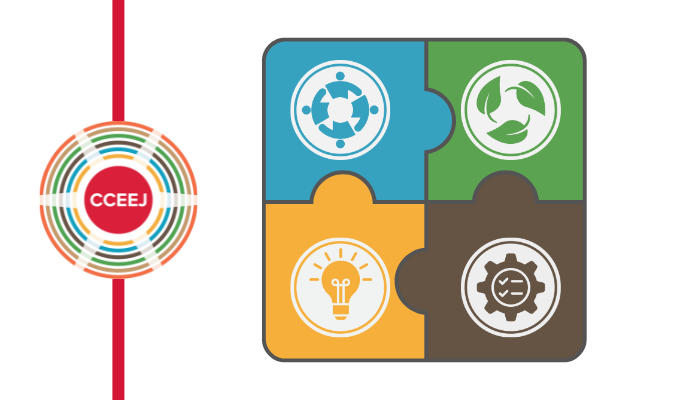Center for Community Energy and Environmental Justice
SDSU’s Center for Community Energy and Environmental Justice (CCEEJ) aims to strengthen community organizations' capacity and effectiveness in applying to, managing, and implementing environmental and energy justice grants and programs.
We help community organizations by providing technical assistance. This includes conducting environmental and energy justice needs assessment and analyses, facilitating navigation of government systems, identifying grant opportunities, and increasing grant getting and administration capacity. We also support decision-making participation and train community champions. You can read our FAQs and find more information about what we do.
Check Out the CCEEJ Community Hub!
CCEEJ is happy to announce the much-anticipated launch of the CCEEJ Community Hub, where you can find energy and environmental justice-related technical assistance resources and connect with the CCEEJ community.

Measuring Impact
Request technical assistance
Mark your calendar
Select an event or view the full calendar for more information. Times are Pacific Time (PT).
EPN SAM.gov Office Hours
EPN SAM.gov Office Hours
EPN SAM.gov Office Hours
More from CCEEJ
Get to know us and how we can help
CCEEJ's story: our mission and how we got started
Learn about our services and how we can help your community
Find out what others are asking
CCEEJ is a US Environmental Protection Agency- and US Department of Energy-supported Environmental Justice Thriving Communities Technical Assistance Center. Our center supports efforts in American Sāmoa, Arizona, California, Guam, Hawai'i, Nevada, and the Northern Mariana Islands.






